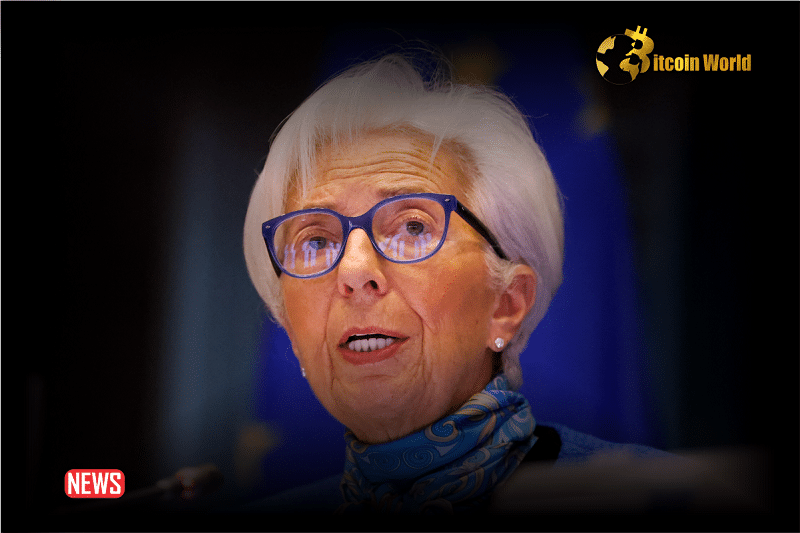- ECB President Christine Lagarde proposed the creation of a European counterpart to the US Securities and Exchange Commission (SEC).
- This initiative aims to address Europe’s pressing challenges like deglobalisation, demographic changes, and the need for decarbonisation.
- Lagarde also suggests consolidating Europe’s national financial exchanges to strengthen the region’s financial system.
Christine Lagarde, the European Central Bank President, recently put forward a groundbreaking proposition that could potentially revolutionize Europe’s financial regulatory framework.
In her strategic vision, she advocates for the establishment of a European counterpart to the United States Securities and Exchange Commission (SEC). This move is aimed at fortifying Europe’s financial capabilities to effectively address the region’s pressing challenges.
Rising to Meet Europe’s Regional Challenges
Lagarde’s proposal emerges against the backdrop of Europe grappling with significant issues, namely deglobalisation, demographic shifts, and the urgent need for decarbonisation.
The establishment of a European SEC, replacing the current patchwork of national watchdogs, is seen as crucial in raising the substantial funds needed to tackle these challenges.
This new regulatory body would not only streamline oversight but also enhance the efficiency of capital markets across Europe. Furthermore, Lagarde emphasizes the need for consolidation among Europe’s national financial exchanges.
A unified European capital market, she argues, is imperative for fostering a robust economic environment. Such consolidation would not only streamline financial processes but also bolster Europe’s position in the global financial arena.
This call for a consolidated market infrastructure underscores the ECB President’s vision of a more integrated and resilient European financial system.
Read Also: US Presidential Candidate, Vivek Ramaswamy, Unveils Crypto Framework
Navigating Through Economic Uncertainties
The proposition comes at a time when the Eurozone is navigating through economic uncertainties, with concerns over a looming recession.
However, Lagarde points out that the focus should not be solely on short-term growth figures but on the broader economic trajectory of the region.
Despite the challenges, the Eurozone is anticipated to avoid a deep economic downturn, which could have long-lasting detrimental effects. However, the modest growth hovering around zero presents its own set of hurdles.
The economic headwinds facing Europe are formidable, suggesting that even with a robust recovery, the region might struggle to achieve significant expansion.
Structural issues and comparative economic lag indicate that Europe might trail behind other major economies for years to come.
This perspective adds weight to the argument for a centralized regulatory authority that could more effectively navigate these complex economic landscapes.
The short-term economic outlook for Europe is mixed, with indications of a shallow recession. Yet, the labor market remains tight, and there is potential for external demand recovery.
Nonetheless, challenges such as high borrowing costs and a softening labor market could dampen the prospects of a strong rebound.
Read Also: SEC Delays Verdict On Franklin and Globe X’s Bitcoin ETF Applications
The European Commission’s projection of potential growth decreasing to 1.2% by 2027 further compounds the urgency for decisive action and reform.
Lagarde’s call for a European SEC is a bold step towards redefining Europe’s financial regulatory landscape. It is a strategic response to the diverse and complex challenges facing the region, aiming to foster a more unified and efficient financial market.
As Europe stands at a crossroads, grappling with economic headwinds and structural issues, the establishment of a centralized regulatory body could be a pivotal move in ensuring the region’s economic resilience and long-term growth.















